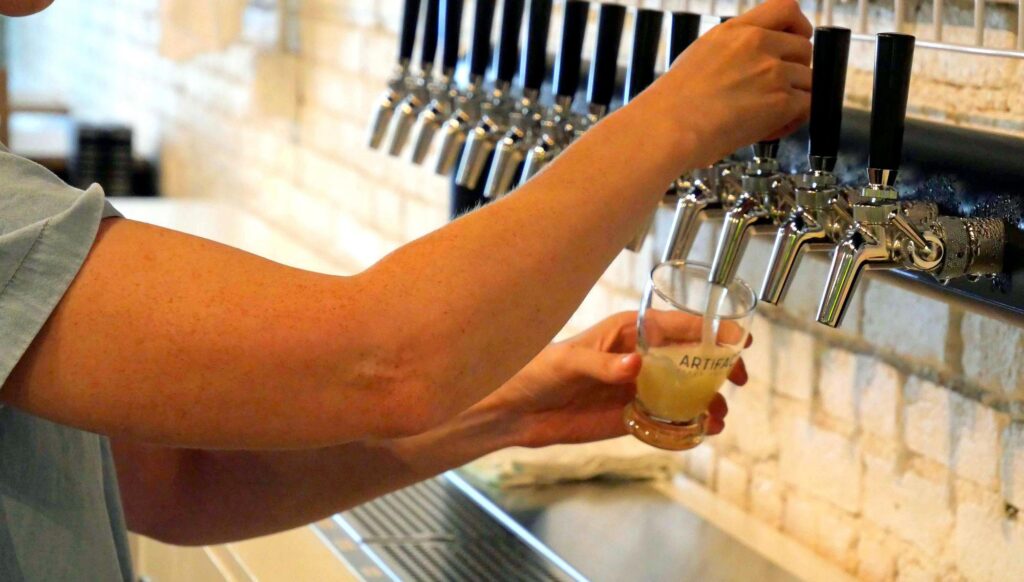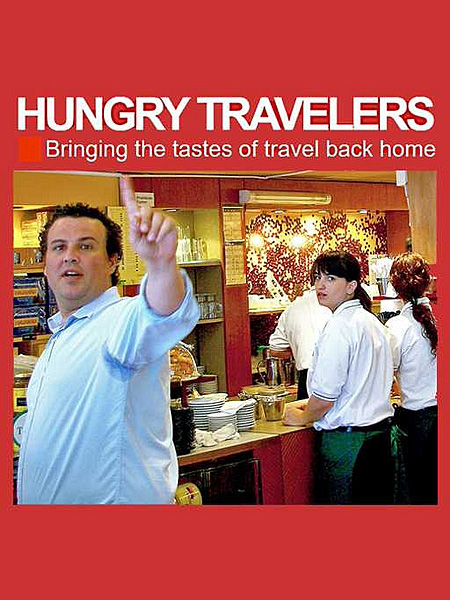In hindsight, Artifact Cider was inevitable. Hard cider, after all, has been a New England thing since the first Brits invaded the region in 1620. Combine the boom in craft brewing with the availability of great historic cider apples in western New England and it leaves us wondering, Why didn’t it happen sooner?

The folks at Artifact aim to update the tradition of New England cider-making for modern tastes. They approach that mission with the verve of winemakers seeking to create a range of different beverages to appeal to different palates and to pair with different foods. They treat apples in much the same way winemakers treat different grapes. Thanks to preservationists and enthusiasts, New England can boast an almost inexhaustible number of named apple varieties for them to choose among.
Head cidermaker and co-founder Soham Bhatt, for example, is a great believer in the cider potential of the ubiquitous McIntosh, which many cidermakers dismiss. He proves his point by creating vastly different styles of cider with the humble mac. Yet he is likewise happy to work with such heritage apples as Orleans Reinette, Dabinett, and American Foxwhelp. Moreover, Bhatt will add other fruit to emphasize certain characteristics or age his cider in barrels previously used for spirits or wine.
Artifact’s main fermentation facility is in Florence, Massachusetts, in the Pioneer Valley—one of the heartlands of the heritage apple revival. But the big tasting room is an eight-minute stroll from home at the MIT end of Cambridge’s Central Square. It’s called The Station (438 Massachusetts Avenue, Cambridge; 617-222-3200; artifactcider.com), an homage to the various state agricultural experiment stations so key to preserving heirloom apples and introducing new varieties.
The range of ciders is impressive. We tasted the six ‶mainstays,″ which are the ciders available in stores in 16 oz. cans as well as on tap at the tasting room. We also tried two current ‶cellar projects,″ which are Bhatt’s small-batch passion projects. They are only available at the tap room. And to top things off, we had a sample of the current taproom seasonal, a very special experimental cider crafted by Artifact’s former assistant cidermaker.
Mainstays
Here’s a quick rundown of our impressions—which were uniformly favorable. The alcohol by volume is given in parentheses.
Slow Down (6.0%) is a very light and fresh cider, fermented entirely from McIntosh apples. It’s companion all-mac cider is Wild Thing (5.4%). Fermented with Artifact’s own captured culture of wild yeast, it is crisp on the palate but smells like sweet apple pie. Between the two is Magic Hour (5.2%). Made from an apple blend, it’s the cider equivalent of an American golden ale fashioned as a session drink. It’s light enough to sip all day—a perfect quaff for a summer afternoon baseball game, whether you’re playing or watching.
The remaining three mainstays appeal to more specialized tastes. Feels Like Home (5.4%) was one of our favorites. The acidity and the sophisticated levels of flavor reminded us of a Loire Valley sauvignon blanc. It’s full of fruit and a little hazy because it’s unfiltered. It’s also aged on rum-soaked oak, though neither rum nor oak comes to the fore. It’s a grassy, brassy cider that begs for cheddar cheese.
We confess that Wolf at the Door (6.0%) is not quite our cuppa. It’s an homage to bittersweet English ciders and stacks layer on layer of flavor. Personally, we found it too tannic and that some of the secondary byproducts of fermentation (various aldehydes) were as pronounced as they are in apple wines. By Any Other Name (6.0%) is the antithesis of Wolf. It’s dry and crisp, like biting into a Baldwin apple. The pink hue comes from the blackcurrants added to the apples.

Cellar Projects
Cider maker Bhatt cultivates a special relationship with Scott Farm Orchard (scottfarmvermont.com) in Dummerston, Vermont, a historic property adjoining Rudyard Kipling’s home (Naulakha). It was the site where much of the film Cider House Rules was filmed in 1998. The Landmark Trust USA property grows more than 130 heirloom and uncommon eating apple varieties, including American Foxwhelp—the large-fruited variant of the small, knobby English Foxwhelp cider apple.
The apple played a starring role in both cellar project ciders available at the taproom. The 2018 Wilkins (6.0%) was fermented from Kingston Black, Dabinett, and American Foxwhelp apples from Scott Farm. It has notes of brown sugar and freshly mown grass with a medicinal overtone that we suspect cider sophisticates would like better than we do. The 2017 American Foxwhelp (6.5%), on the other hand, is fruity and balanced, with just enough tannin to make it food-friendly and palate cleansing. A superbly crafted drink, it’s everything an American cider should be.
Keeved Cider
The taproom seasonal is called Carte Blanche (5.7%). It was fermented on the whole fruit, a technique that leads to the formation of a hard brown cap on the fermenting juice that traps the carbon dioxide of fermentation in the juice. A secondary fermentation of juice tapped from between the cap and the messy lees at the bottom of the vat was conducted in very cool temperatures. The resulting cider, mostly made from Scott Farm bittersweet varieties, has striking sophistication. It’s slightly prickly on the tongue from the dissolved carbon dioxide, sweet with pure apple flavor. The finish is tannic and a little bitter, making it a splendid companion for cheese, sausage, or even summer berries.

The Station offers a range of snacks to go with the ciders—we recommend the Frito Chaat ($7) and Pimento Cheese ($6). We took advantage of the cider flight program of four 4 oz. glasses drawn from the mainstays, cellar projects, and taproom seasonal. Prices range $12–18, depending on choice of ciders, which we consider pretty much a bargain. (Some other ciders are available only as on-site bottle and can pours.) As we write, The Station is open Wednesday–Friday 4–11pm, Saturday noon–11pm, and Sunday noon–8pm with spacious indoor and outdoor seating.
We’d urge every reader to visit—just not all at once. Leave some seats for us.
